HalalZilla consults the great archives of football to handpick our top Muslim players who’ve ever laced a pair of boots in the big leagues – especially those you didn’t know were Muslim!
How to Perform Hajj: The Various Stages Step-by-Step
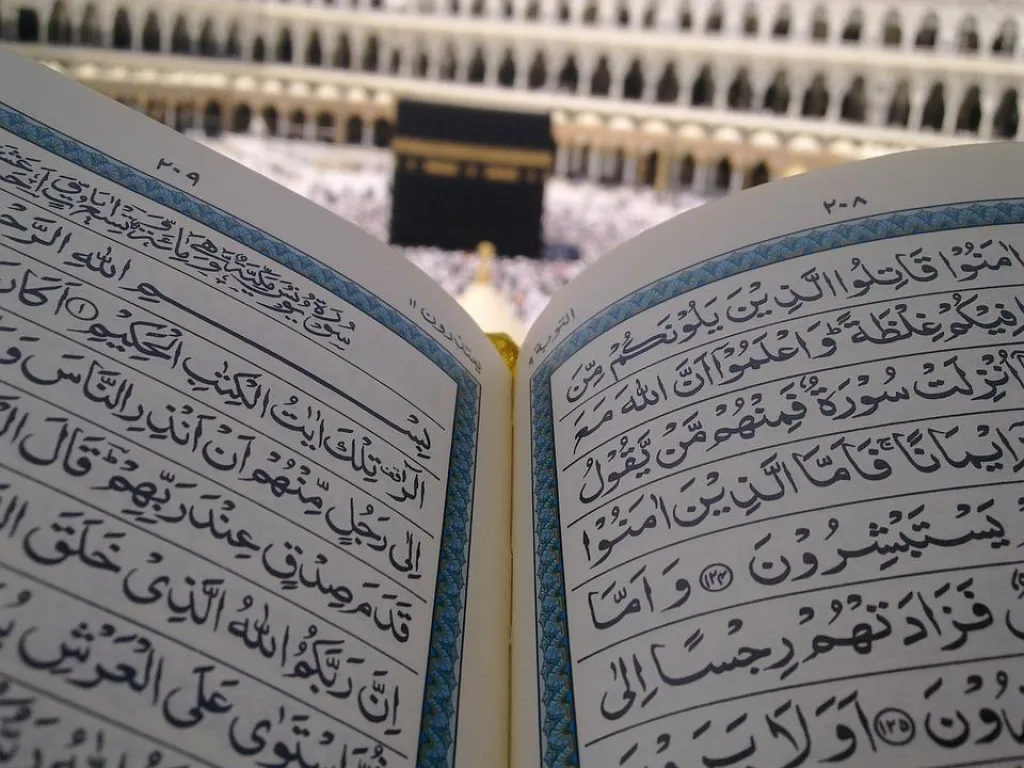
“Hajj purifies the sins and pilgrim becomes sinless as a newborn child.” (Sahih Bukhari: 1521)
There is only one month every year that Muslims from all parts of the world make their way to Mecca to perform Hajj. This is during the 12th month in the Islamic calendar, Dzulhijjah. The Hajj is a special, spiritual journey which dates back thousands of years ago. It can be daunting and stressful to prepare for this blessed act of worship. Here’s a guide to simplify and break down the steps in Hajj!
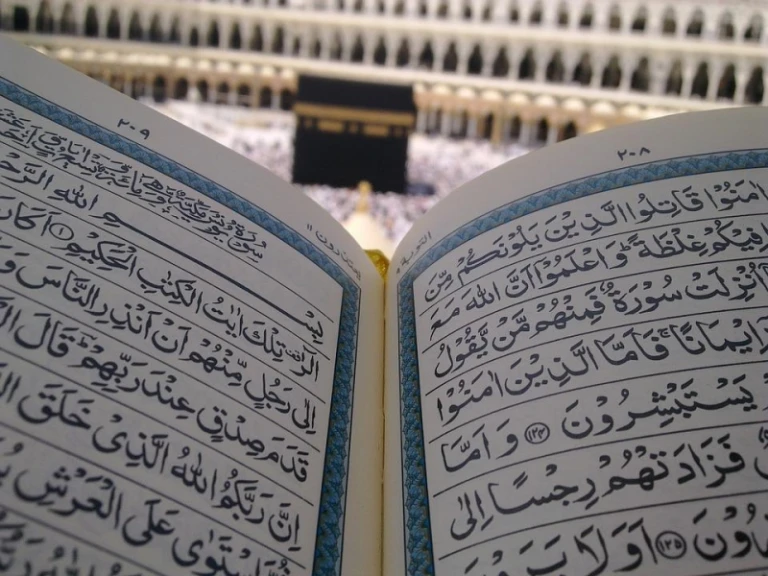
The conditions that make Hajj obligatory upon a Muslim are:
- Has to be a Muslim.
- Has to be sane.
- An adult.
- Being free (not obligatory for a slave).
- Has the ability to perform Hajj (physically and financially).
There are some essential and obligatory actions of Hajj:
- Entering the state of Ihraam with the intention to perform Hajj.
- Staying in Arafat, also known as Wuquf at Arafat.
- Tawaf
Also read: What Is Hajj and Why Is It Important to Muslims?
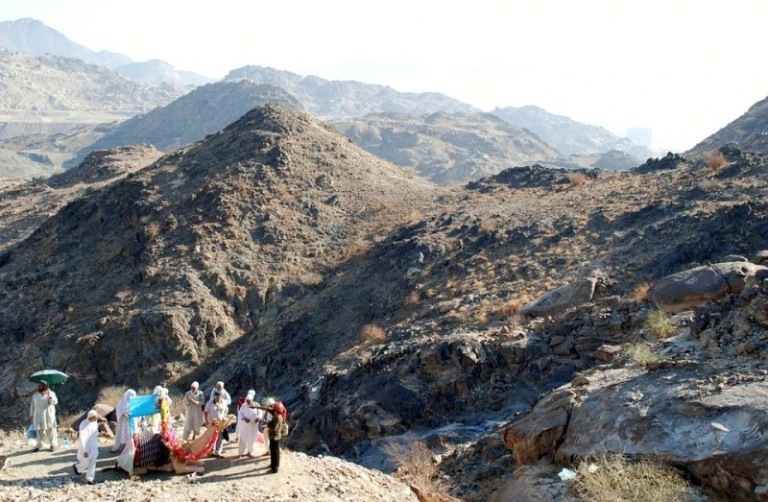
The six obligatory (Wajibaat) acts of Hajj are:
- Staying at Muzdalifah.
- Sa’i between Safa and Marwah.
- Stoning of Jamarat.
- Sacrifice of an animal (Qurban).
- Cutting or shaving hair.
- Tawaf-ul-Wada of Kaabah, also called farewell tawaf.
It is important to note that the Hajj becomes invalid if any essential parts are not completed. If an obligatory act is omitted, it is still valid, but a “dam” or compensatory sacrifice needs to be done for each act omitted.
State of Ihraam
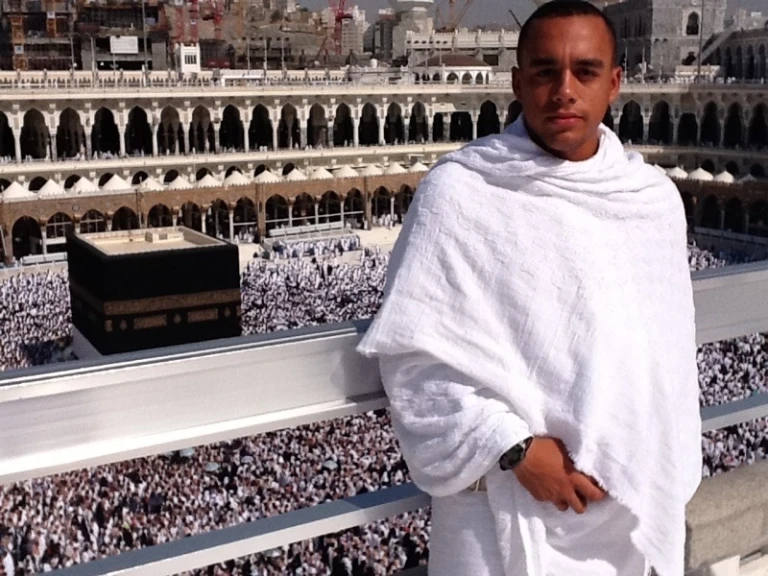
One of the main concepts in Hajj is Ihram. Ihraam is the state of purity and holiness in which a Muslim enters, as he crosses the Miqat (outer boundaries of Mecca). Men will don simple garments – two unstitched clothes, and for women, they follow the general Islamic dress code. Once pilgrims enter the state of Ihram, they should start reciting Talbiyah whereby they make the intention to make Hajj in the Holy Land.
1st Day of Hajj: Tarwiyah Day, 8th Dzulhijjah
After Fajr prayers in Mecca, all pilgrims start to travel to Mina (a town in Mecca) by foot, by buses or cars. On the way, the Talbiyah should be recited frequently.
لَبَّيْكَ اللَّهُمَّ لَبَّيْكَ، لَبَّيْكَ لَا شَرِيكَ لَكَ لَبَّيْكَ، انَّالْحَمْدَ، وَالنِّعْمَةَ، لَكَ وَالْمُلْكَ، لا شَرِيكَ لَكَ
Translation: “Ever at Your service, O Allah, every at Your service. Ever at Your Service, You have no partner, ever at Your service. Verily all praise, blessings and dominions are Yours. You have no partner.”
Upon reaching Mina, the other four obligatory prayers (8 Dzulhijjah), and Fajr prayer of the 9th of Dzulhijjah will be performed. Do note that the Zohor, Asar and Isyak prayers are each shortened to two Rakaat only (Qasar). Each is performed during their respective times. The pilgrims will have to stay overnight in Mina. This completes the first day of Hajj.
2nd Day of Hajj: Arafah Day, 9th Dzulhijjah
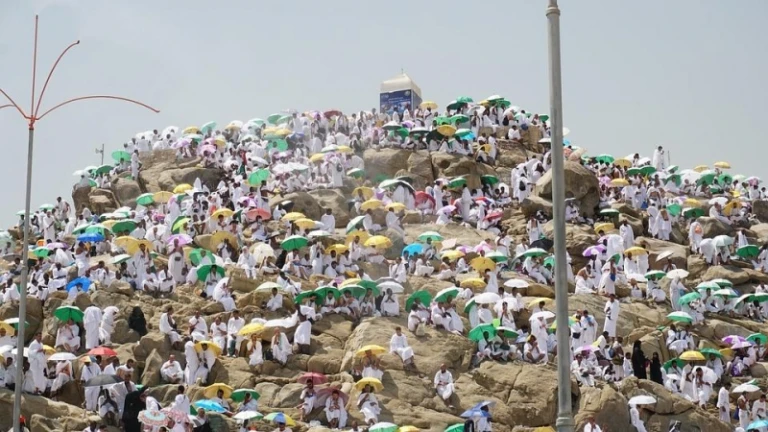
The Day of Arafat is considered one of the most important days, not just of Hajj, but of the Islamic calendar. On this day, Fajr is to be performed in Mina, and pilgrims remain there until sunrise. After sunrise, pilgrims then begin their journey to Arafat. Throughout the journey, the Talbiyah and Takbir should be recited frequently. Dzikr, istighfar and other supplications can also be recited.
لَا إِلَهَ إِلَّا اللَّهُ وَحْدَهُ لَا شَرِيكَ لَهُ لَهُ الْمُلْكُ وَلَهُ الْحَمْدُ وَهُوَ عَلَى كُلِّ شَيْءٍ قَدِيرٍ
Translation: “There is none worthy of worship besides Allah, He is all by Himself, He has no partner, His is the Kingdom, for Him is all praise, He has power over all things.”
Staying in Muzdalifah
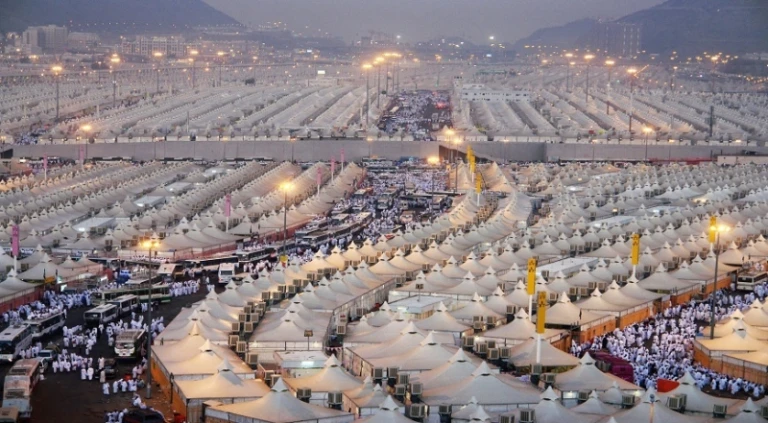
Pilgrims will reach Arafah before Zawaal, which is the starting time of Zohor prayers. Then, Zohor and Asar prayers will be combined (Qasar) near Jabal ah-Rahmah. They will remain within the boundaries of Arafat until sunset. This act is known as Wuquf (standing before Allah). After sunset, they will proceed for Muzdalifah (a town between Mina and Arafah) while reciting the Talbiyah and other supplications to remember Allah. Upon reaching there, the Magrib and Isyak prayers will be performed together.
Pilgrims will pick seven small pebbles preferably (or 49, or 70) for Jamaaat the next day. Otherwise, they may also pick the pebbles after Fajr the next day. They will stay overnight in Muzdalifah and rest the night in preparation for the next day’s ritual of stoning at Jamaraah. This completes the second day of Hajj.
3rd Day of Hajj: First day of Eid, 10th Dzulhijjah
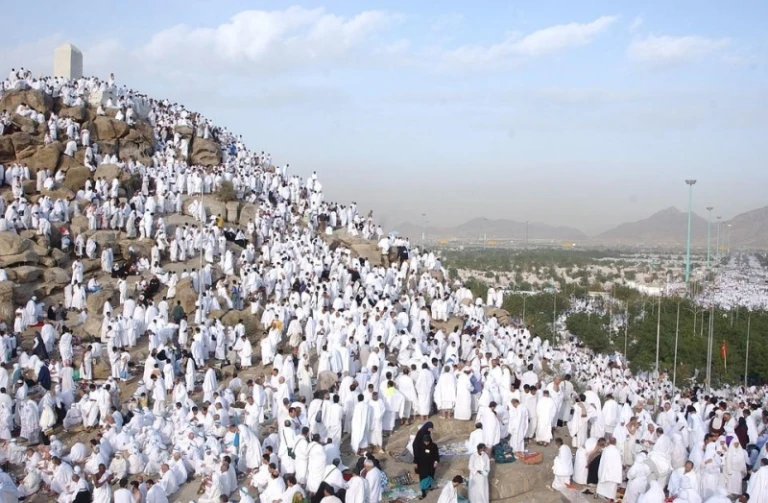
The third day of Hajj is the longest day for all pilgrims as millions travel to throw pebbles at the pillars. Today, Muslims all over the world and in Hajj celebrate Eid Al-Adha.
Jamarat Al-Aqabah: Devil Stoning
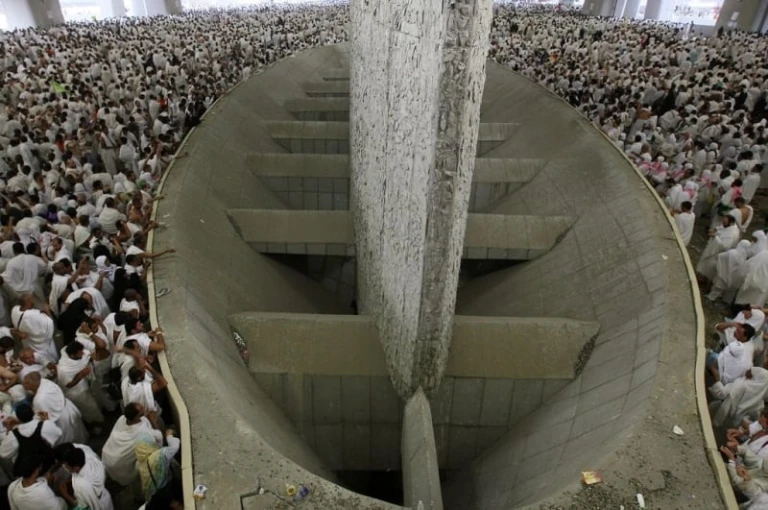
The day starts after performing Fajr in Muzdalifah, where they will stay till sunrise. They then depart to go to Mina while still reciting Talbiyah. After reaching Mina, pilgrims head to Jamarat Al-Aqabah with the seven stones. This is the last and largest pillar of the three stoning sites.
Pilgrims stop reciting Talbiyah before throwing the first stone. They will then start throwing the seven stones, reciting Allahu Akhbar with every throw (Rami). This is a significant step in Hajj as well as a reminder of the test of Nabi Ibrahim a.s.
Animal sacrifice (Nahr)
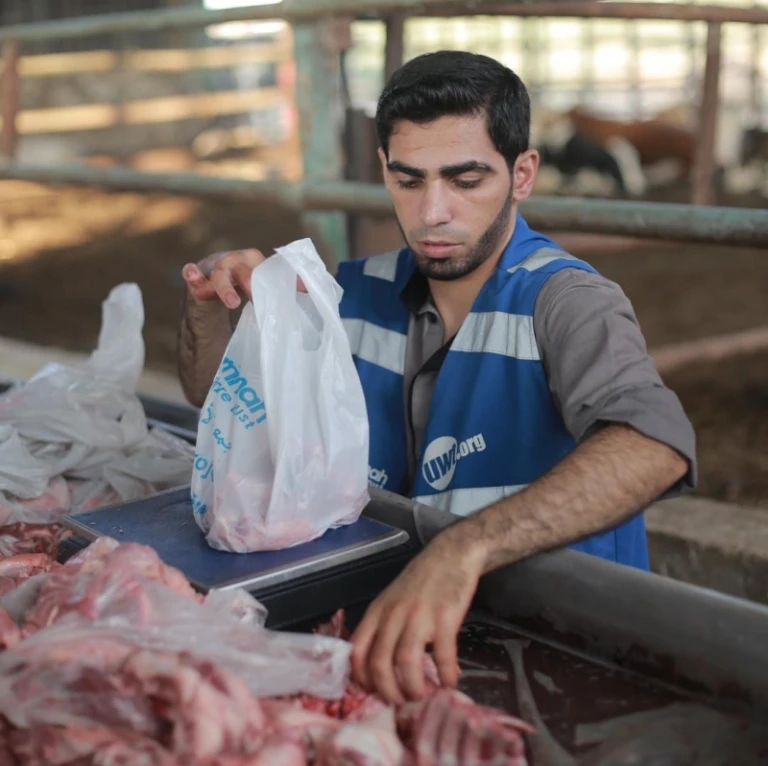
The culmination of this stoning ritual is an important animal sacrifice. They must slaughter a goat, sheep, camel or a cow, which will be fed to the poor.
Shaving the head (Halq) or Trimming the hair (Taqsir)
After sacrificing an animal, men will then shave or trim some of their hair. For ladies, they are forbidden to shave their heads, and are only allowed to trim their hair. With this, pilgrims are partly out of ihram.
Return to Kaabah for Tawaf and Sa’i
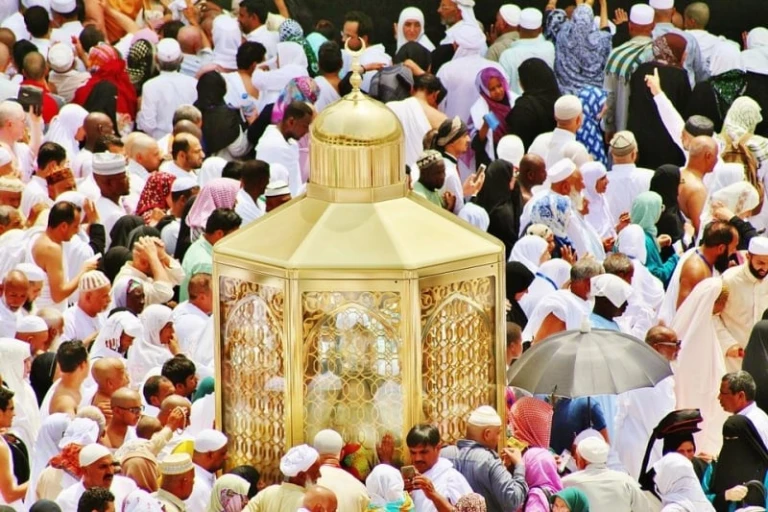
After this, many will then proceed to Masjid Al-Haram in Mecca to perform Tawaf Al-Ifadah. This is performed as usual with seven rounds around the Kaabah. They then perform two rakaats of Tawaf (wajib) behind Maqam Ibrahim if possible, or wherever in the mosque, and continue with the Sa’i of Safa and Marwa. Upon completion of the steps, pilgrims return to Mina and stay there. This completes the third day of Hajj.
4th Day of Hajj: 2nd Day of Eid, 11th Dzulhijjah
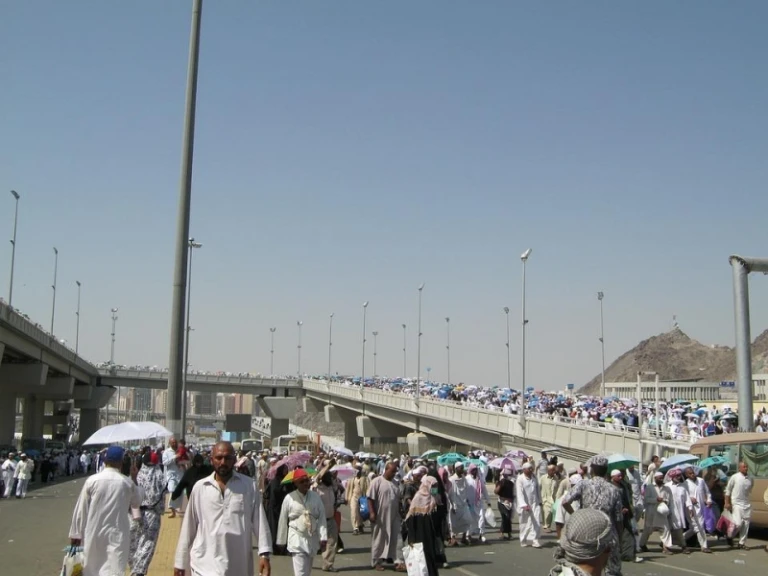
During the final days in Mina, the pilgrims will again symbolically stone the devil at Jamarat, at each of the pillars. (Jamarat-al-Oola, Jamarat-al-Wusta and Jamarat Al Aqabah). With the hardest part behind them, pilgrims will now spend the next two or three days in Mina in praying and remembering Allah.
Perform the Farewell Tawaf
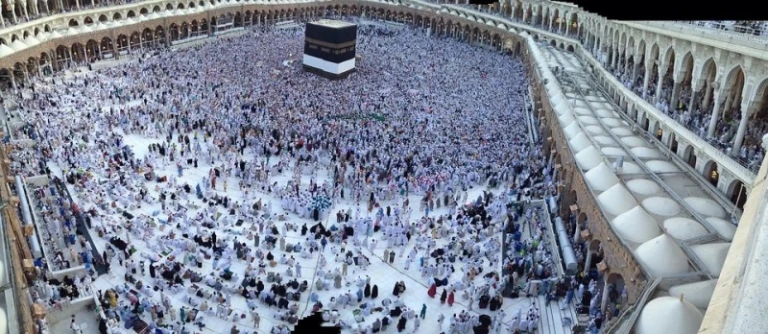
When their time in Mina is finished, the pilgrims return to Mecca to perform the final circulation of Kaabah, known as the farewell Tawaf. Pilgrims can use this time to reflect on their experience and be grateful to Allah for everything. Before departing back home, pilgrims may also visit Madinah, the second holiest city in Islam. Note: It is not part of the pilgrimage.
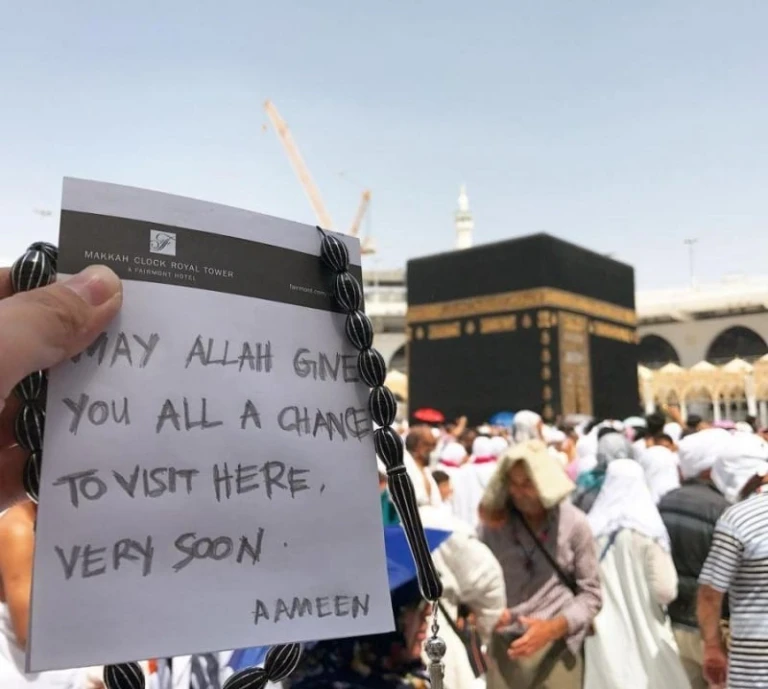
After Hajj, pilgrims return home with renewed faith and trust in Allah. It will be a challenging journey but always remember to be conscious of our intentions and actions. May Allah grant all of us the chance to perform the Hajj once in our lifetime, and accept it.
Also read: Hajj 2019: Essentials Every Muslim Pilgrim Should Pack
Published at
About Author
Amira Rahmat
Subscribe our Newsletter
Get our weekly tips and travel news!
Recommended Articles
10 Muslim Footballers That Will Inspire You And Your Goals 12 Culture Shocks You’ll Experience During Umrah Welcome to the land of blessings & calmness ~
2019 Emirates FA Cup Final Winners Will Celebrate With Non-Alcoholic Champagne Regardless of the team you support, it’s heartening to know that the winners will be offered non-alcoholic champagne to cater to those who don’t drink.
2025 Japan Fireworks Festival Guide: Dates, Locations & Muslim-Friendly Tips It's hanabi taikai season ~~
4 Hijab-Friendly Spas in Singapore For Your Raya Glow Up Do you want to look your best this Hari Raya? These hijab-friendly spas in Singapore will not only pamper you but also make sure you are #RayaReady.
Latest Articles
Eat Well in Da Nang, 10 Halal and Muslim-Friendly Spots You Need to Try Your ultimate guide to finding the best Muslim-friendly dining spots, from local favorites to global tastes.
Independent Umrah Guide: How to Plan a Meaningful and Seamless Sacred Journey ollow this step for your Independent Umrah Guide
The Best Halal Food in Sydney: A Must-Visit Guide for Muslim Travelers A Must-Visit Guide for Muslim Travelers
8 Best Halal Fishball Noodle Spots in Singapore: From Hawker Gems to Michelin Stars Craving authentic fishball noodles? Check out our top picks for the best Halal-certified fishball spots across Singapore.
10 Best Winter Destinations in Nagano: A Muslim Traveller’s Guide to the "Roof of Japan" Get ready for the iconic sight of snow monkeys bathing in natural hot springs.

